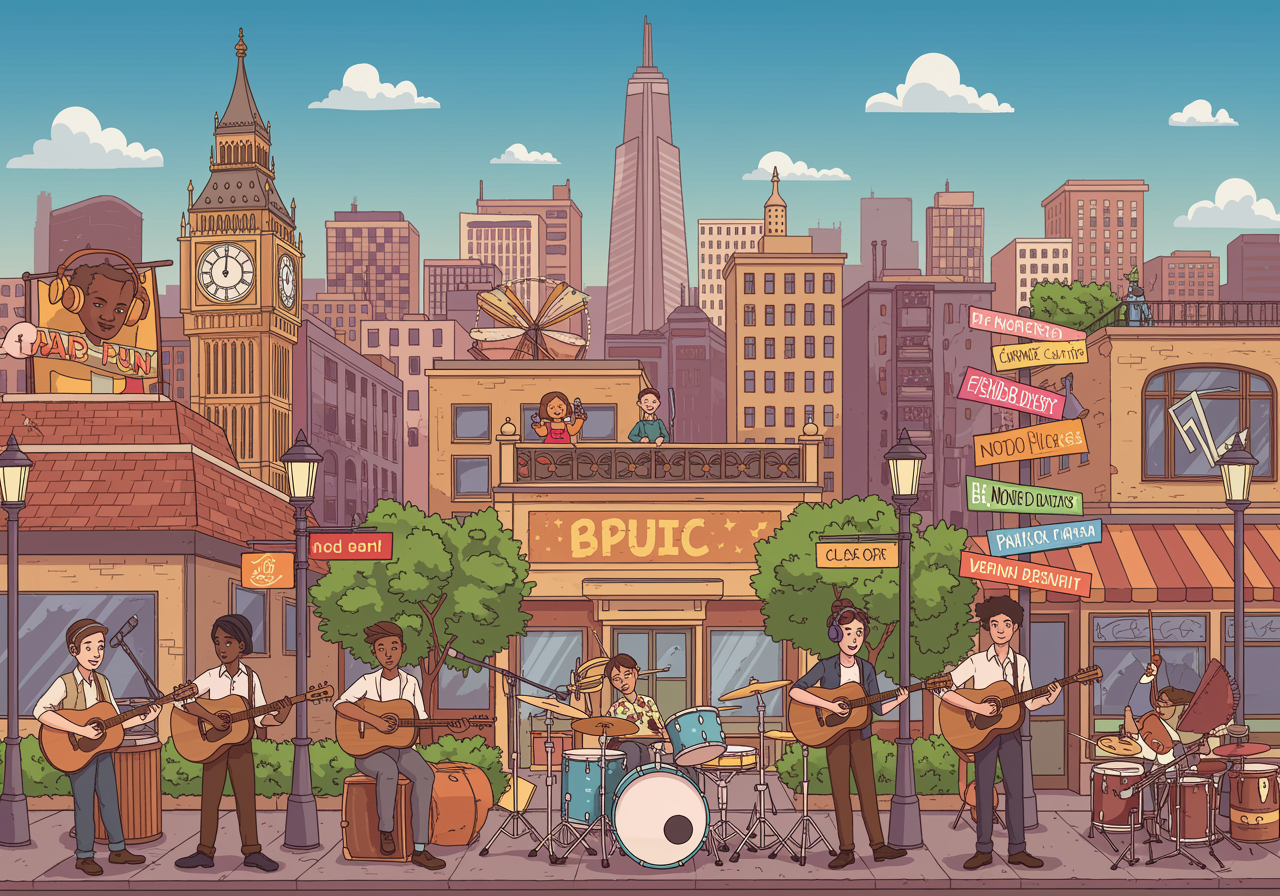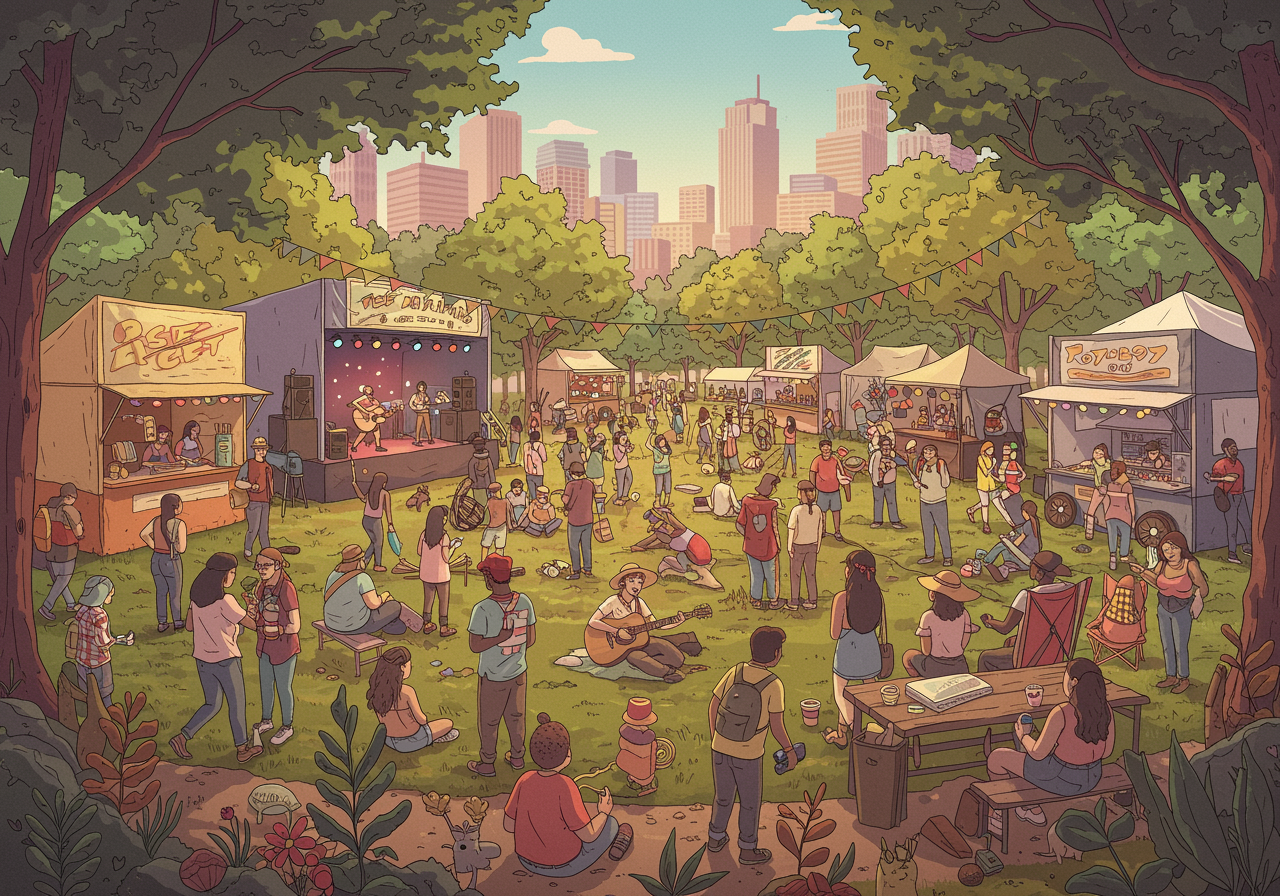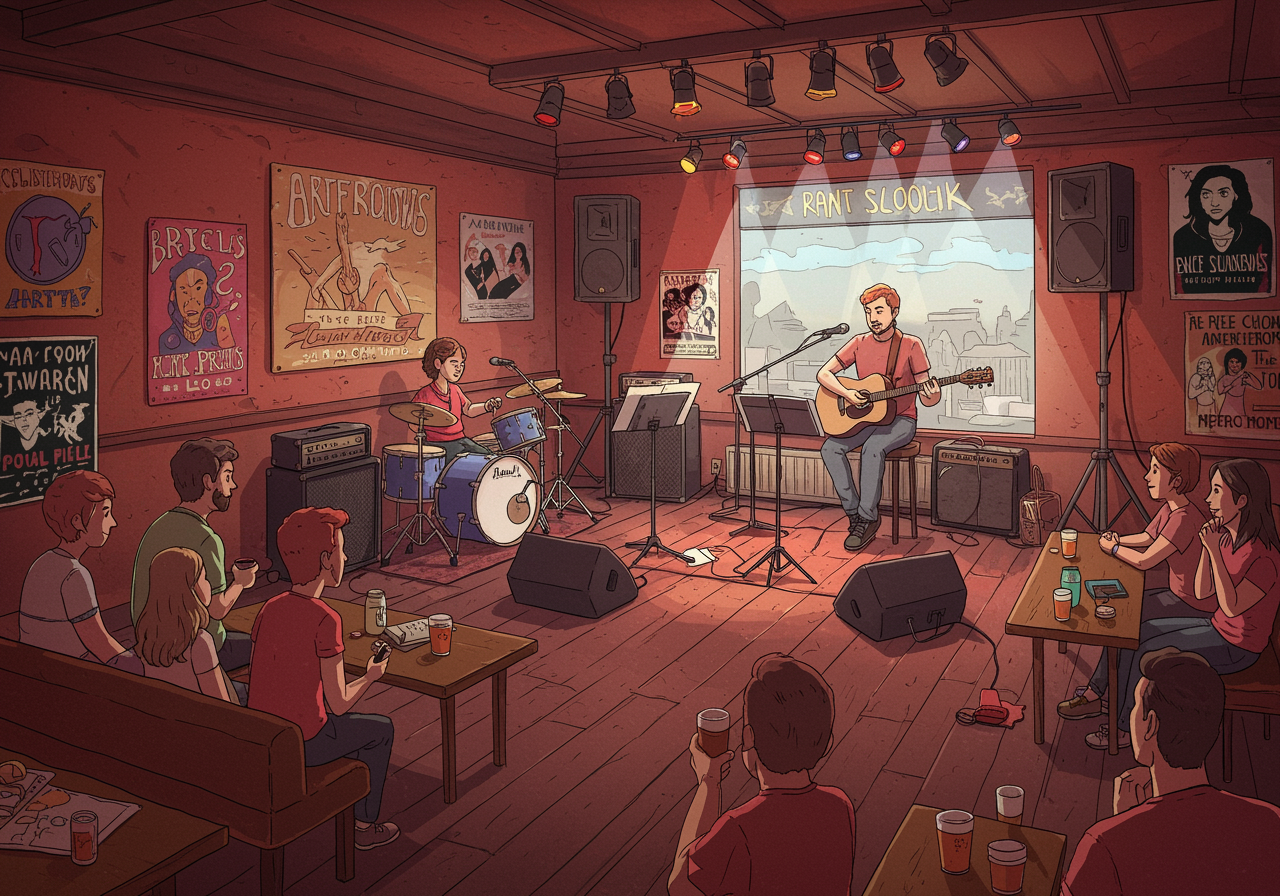Rock This Town: Why Some Cities Become Music Legends

The secret ingredients that turn ordinary places into music capitals
Discover why Nashville became country music’s home, Austin earned its ‘Live Music Capital’ title, and what makes a city the perfect stage for musical magic.
Overview
Have you ever wondered why Nashville is called 'Music City' or why everyone talks about Austin's incredible live music scene? Music hotspots aren't born overnight – they're created by a perfect storm of culture, community, and opportunity. Understanding how cities build their musical identity helps us appreciate the power of creativity, community support, and how places can reinvent themselves. It's also a great way to explore how economics, technology, and social changes shape the world around us.

Understand in 30 Seconds
Get up to speed quickly
- It's All About Community: Music scenes grow when local people support artists, venues stay open, and musicians help each other succeed.
- Money Matters: Cities need affordable spaces for musicians to live and perform, plus audiences with money to spend on shows.
- Timing Is Everything: The right moment in history – like new technology or cultural changes – can launch a city's music scene to stardom.
- Location, Location, Location: Geography helps too – cities at crossroads of travel routes or with unique cultures often become music hubs.
Real Life Scenario
Situations you can relate to
Imagine your town has three coffee shops where local bands play. One coffee shop charges musicians to perform, another only books big-name acts, but the third lets anyone play for free and splits the tip jar with performers. Which place do you think will have the most loyal musicians and crowds? Now think bigger – what if your whole city had that same welcoming attitude toward music? That's exactly what happened in Austin, Texas, where the motto 'Keep Austin Weird' encouraged creativity and risk-taking. Meanwhile, cities that made it too expensive for artists to live or too hard to get permits for shows often watched their music scenes disappear. Which type of city would you want to live in as a musician?

Role Play
Spark a conversation with “what if” scenarios
What if you were the mayor of a city trying to build a music scene?
- Role play: Take turns being the mayor and a musician. The mayor tries to convince the musician to move to their city by explaining what they offer (cheap rent, cool venues, supportive crowds). The musician asks tough questions about costs and opportunities.
What if you owned a small venue and had to decide which bands to book?
- Role play: One person is the venue owner, another is a local band trying to get their first gig. Discuss what makes a good partnership between venues and artists, and how both can help each other succeed.
What if your favorite band was deciding between moving to Nashville or staying in your hometown?
- Role play: Debate the pros and cons of each choice. What would the band gain or lose? How might technology like streaming and social media change their decision compared to bands 20 years ago?
FAQs
Frequently asked questions people want to know
Why did Nashville become the country music capital?
Nashville had the perfect mix: radio stations, record labels, and the Grand Ole Opry all set up shop there in the early 1900s. Musicians followed the industry, and the city embraced its musical identity.
Can a city's music scene come back after it dies?
Absolutely! Detroit's music scene has been rebuilding after tough economic times, and cities like Cleveland have reinvented themselves around music tourism and festivals.
Do streaming services hurt local music scenes?
It's complicated! Streaming helps artists reach global audiences without record labels, but it also means less money from album sales. Live shows become even more important for musicians to make a living.
Examples in the Wild
See how this works day to day
- Austin, Texas keeps its 'Live Music Capital of the World' title by hosting over 250 music venues and making it easy for musicians to get permits for street performances (Austin Music Census 2023)
- Seattle's grunge scene exploded in the 1990s partly because cheap rent allowed musicians to focus on their art instead of survival jobs (Smithsonian Magazine)
- Nashville's Music Row still houses over 180 music businesses, showing how clustering creative industries in one area creates a powerhouse (Nashville Scene Magazine)
- New Orleans rebuilt its music scene after Hurricane Katrina by focusing on music education and preserving cultural traditions while welcoming innovation (NPR Music)
In Summary
What you should know before you start
- Music hotspots need supportive communities, affordable spaces, and audiences willing to take chances on new artists
- Economic factors like rent costs and job opportunities can make or break a city's appeal to musicians
- Historical timing and cultural moments often determine which cities become music legends
- Technology changes how music scenes develop, but live performance and community connection remain crucial
Pro-tip for Parents
You got this!
If your teen seems skeptical about how 'boring' economics affects creative things like music, try connecting it to their own experiences. Ask them about their favorite local band or venue – what would happen if rent doubled or if nobody showed up to shows? This helps them see how practical concerns and creative dreams are always connected, not separate worlds.

Keep an Eye Out For
Find these examples in everyday life
- News stories about cities investing in arts districts or music venues – great examples of how policy affects creativity
- Documentaries about famous music scenes like 'Sound City' or 'Muscle Shoals' that show how geography and community shaped music history
- Local music festivals or venue openings/closings in your area – perfect real-time examples of how music scenes evolve
Explore Beyond
Look up these related research topics
- How streaming services are changing the music industry and what it means for artists
- The role of technology in music creation and how it's democratizing music-making
- Cultural appropriation vs. appreciation in music – when borrowing becomes problematic